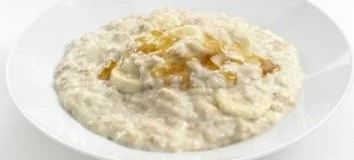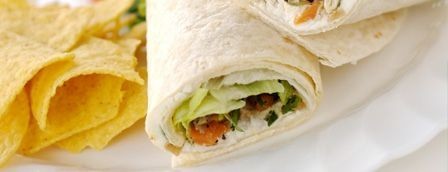Food Recipes for Babies Starting on solids
When it comes to our precious little ones, we as parents do not wish to compromise on anything food being the area of biggest concern. This diet plan for toddlers (1- 3 years of age) will help you in decoding most of the questions that might cloud your mind and hearts. What food to feed? How much food to give at one time? How to know when to stop? How to be sure that your kid is not allergic to the food you are giving them? And more such questions cross your mind, all will be answered below in this article about the diet plan of toddlers.
Well before the time children have their first birthday, they need to be eating a similar diet to the rest of the family as these are considered as the crucial years for laying the foundation of your baby’s health. Most babies outgrow the stage of eating mashed and bland foods and will now begin to eat more elaborate meals.
And, as your child is now learning to eat more solid foods, they become more active. Good nutrition gives your child what he/ she needs for growth, health, and energy for playing, moving, and learning. Here are few suggestions to help you feed your toddler.
Do remember that the food habits formed at this age will hold them with good for lifetime. So, you need to ensure that you baby eats healthy and nutritious food. Encourage your toddler to eat whatever they like and treat them with a variety of foods so that they cultivate a taste for new food.
What should my toddler be eating?
The toddler years are full of exploring and discovery. The best thing you can do is to offer your toddler a variety of foods from each food group with different tastes, texture and colors.
How much your toddler should be eating?
Between the ages of 1 and 3 years, your bundle of energy will grow very rapidly, learning to crawl, talk etc. During this period, he/she will need to be fed more frequently. Unfortunately, right now, her small stomach is not in a situation to cope up with large meals. So, offer small and frequent meals to your child.
Also remember not to set hard and fast rules in terms of a particular time or number of meals, because what is really important is not the number of times your child eats but what she eats. You need to emphasize on the quality and not quantity of food he/she eats. Be flexible as rigidity regarding meal times may lead only to stubbornness.

What foods do toddlers need?
Foods from the bread and cereal, fruit and vegetable, meat and fish, milk and dairy as well as fats and oils groups need to be part of their everyday toddler feeding diet.
- Breakfast is an important meal of the day for toddlers. The best way to boost their interest and appetite for meals is to stop all milk drinks overnight. Cereal drenched in milk, whole grain toast with a healthy spread and some fruit will meet your toddler’s nutritional requirements from the start of each day.
- Morning tea can be a light snack such as fresh fruit, cheese and a drink of water. One drink per day of fresh fruit juice, diluted with water to (at least) 1/3 or 1/2 full strength concentration is sufficient. Fresh fruit is a much better way of providing fiber and vitamins.
- Lunch needs to be reasonably early for most toddlers; around 11-11.30 a.m. is ideal. A protein source such as meat, egg, or fish with salad/vegetables or bread is recommended. A cup of milk or serve of dairy food such as cheese, yoghurt or a dairy dessert will provide a calcium serve.

- Afternoon tea is similar to morning tea in terms of quantity and variety. Another piece of fruit, cheese, crackers or salad vegetables are additional toddler feeding options. Offer another drink of water as well.
- Make sure that dinner needs to include meat or fish, vegetables, baked beans, lentils, rice/pasta. Try to feed your toddler before they get too tired and be organized with feeding them when they show signs they are hungry. Offer a cup of milk after dinner when this will be less likely to impact on their food intake.
Three to four serves of milk or dairy foods a day is generally sufficient. This will meet their (RDI) Recommended Daily Intake of 500mgs/day for children aged 1-3 years.
Recipes:
- Fruit banana porridge

There’s nothing quite like hearty bowl of warm porridge on winter’s morning. Perfect for babies, toddlers, and mum. Just change the consistency to suit.
- Lavish Bread Pizza Rolls

Lavish bread pizza rolls are quick and easy and you can prepare them early and heat them up later. Great for a busy night’s tea.
- Corn and Peas with Cottage Cheese

Yellow pearls of corn combined with peas and cubes of cottage cheese are really appealing and little toddlers will enjoy munching them.
- Roll Ups

An easy snack to make that is colorful and healthy! Roll up different color vegetables and add delicious sauces to add that little something extra!
- Fruity Oats

It’s great to have another variation for the kid’s breakfast, especially one that has some added benefits.
- Mini Apple Sponges

These mini sponges are a delight for children and adults of all ages. They have the appeal of cakes but are packed with fruits.
- Tuna Patties

A great way to get more vegetables and fish into toddlers and also a good emergency meal to keep in the freezer for busy days.
- Veggie Rolls

Veggie rolls are great for kids as they add more variation to use left-over veggies or meat with addition of sauces.
- Banana Muffin

Simple banana muffin recipe that the kids will love, add a bit of butter right out of the oven for a delicious winter treat.
- Fruit Rice Pudding

A fantastic dessert for the whole family. From dad right through to baby. Perfect for a winter’s evening and simple to prepare.
- Chicken Rice

This meal is healthy, quick and incredibly delicious! A great and colorful way to get your fussy toddler eat their vegetables.
- Muesli Bars

These muesli bars contain loads of fruit and are a yummy health snack for mum and kids.
- Pulse and Vegetable Soup

This colorful soup is a good way to combine dal and vegetables, giving your little one the combined benefits of protein from dal and iron, folic acid, vitamin A and fiber from vegetables. Since this soup uses naturally flavored veggies, you do not need any spices in this soup. Plus, the unique garnish of crumbled paneer adds to the taste and nutrition content of this Dal and Vegetable Soup.
Serve it lukewarm with whole wheat bread sticks and watch your baby dip them into the soup and munch them with relish.
Is there anything I shouldn’t feed my toddler?
It is important to avoid foods that may cause choking:
- Slippery foods such as whole grapes; large pieces of meats, poultry, and hot dogs; candy and cough drops.
- Small, hard foods such as nuts, seeds, popcorn, chips, pretzels, raw carrots, and raisins.
- Sticky foods such as peanut butter and marshmallows.
- Always cut up foods into small pieces and watch your child while he or she is eating.
Also, your child may have some food allergies. The most common food allergies are milk, eggs, peanuts and other nuts, soybeans, wheat, fish, and shellfish. Many children grow out of food allergies. If you think your child might have a food allergy, talk with your doctor.
Do not give your child foods such as:
- Whole peanuts, nuts, seeds, or popcorn
- Fish with bones
- Dried fruit such as raisins
- Hard candy or cough drops
- Gum, marshmallows
- Lumps of peanut butter, nut or seed butters on a spoon
Large pieces of lettuce and spinach.
Top 10 things to keep in mind when feeding toddlers
- Sugar ideally should not be added to a child’s diet. However, if a product has added sugars they should not be in the top three ingredients listed on the packet.
- Drinks containing caffeine should not be given to children.
- Sodium should be minimized and ideally not exceed 120mg per 100g.
- Fruit juices are not necessary. It is better to eat the fruit instead and water. Fruit juices may be a good source of some vitamins, but the downside is they are low in fiber, high in energy and can displace foods.
- Potato chips are not the best way to eat potato. Most commercial brands are high in fat and salt, and best left for special occasions. Some healthier versions are available, and of course homemade chips in fresh olive oil can be a tasty treat.
- Wash all fruit and vegetables. This will reduce the risk from any nasties.
- Supervise young children. To reduce the risk of choking, toddlers and young children should always be seated and supervised while eating all foods, including chopped raw fruit, vegetables and all “hard” foods.
- Take care when using fillings such as honey, jam or other spreads as they can limit the nutrition of a meal. Likewise, biscuits, chips, bars, ollies, flavored milk, cakes and pastries can severely impact on the nutrition of a meal as well as displace health foods and meals later due to the large amount of energy in such foods.








